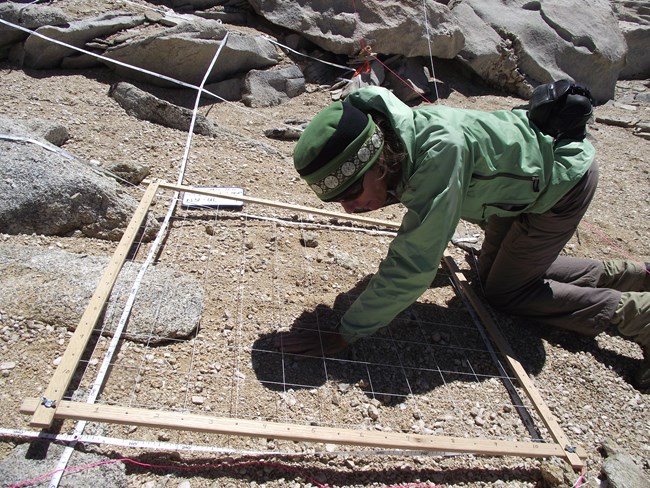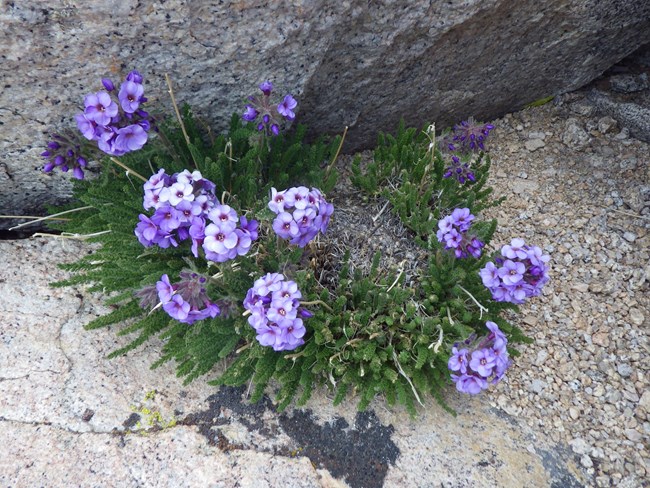
NPS Photo What is GLORIA?GLORIA (Global Observation Research Initiative in Alpine Environments) is an international project that monitors alpine plants at risk from climate change at the tops of the world's highest mountains. In 2010, a GLORIA site was established on four sub-summits of Mount Langley in Sequoia National Park. GLORIA is a global observation network that began in 2000 in 18 European mountain regions, and the network currently comprises more than 50 teams working in 70 mountain regions distributed over five continents. GLORIA uses a multi-summit approach and standardized low-impact monitoring methods, allowing the study of alpine plant communities and climate change impacts both within and among regions. By resurveying the sites at intervals of 5 to 10 years, scientists can link changes in species cover and composition to temperature data. 
NPS Photo Why do we monitor alpine plants? Plants of the alpine life zone are particularly sensitive to warming temperatures because they are adapted to low temperature conditions. Alpine plants are also limited in their migration ability to reach higher altitudes or latitudes due to the island nature of mountain tops. Alpine environments often contain a relatively high number of endemic species (species that occur only locally) that risk extinction. This project will provide site-specific information about changes on Sequoia's Mount Langley site and will also be comparable to other GLORIA sites in the region and around the world. Being part of a global network gives the local data even greater value. They contribute to an understanding of how high-elevation environments respond to large-scale impacts like climate change. |
Last updated: October 17, 2023
